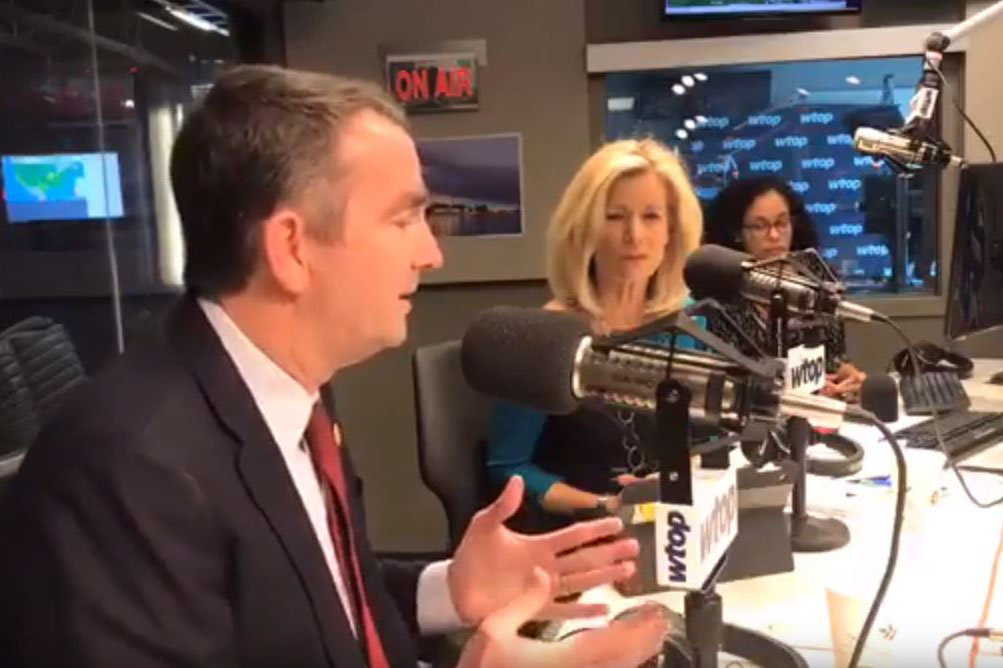
WASHINGTON (BP) — The expanding effort to strike down state regulations on abortion until the moment of birth brought a sharp rebuke from a Southern Baptist ethicist of a governor whose comments supported permitting babies to die if they survive the procedure.

The controversy in Virginia came a week after New York legalized abortion until birth for the mother’s “health” — which is not defined and has been interpreted by the U.S. Supreme Court to include essentially any reason — and as other states seek to wipe out limitations on the procedure.
Virginia became the latest battleground in the abortion conflict after Kathy Tran, a Democrat in the Virginia House of Delegates, spoke Jan. 28 before a subcommittee on behalf of her legislation to repeal abortion restrictions. In response to questioning by House Majority Leader Todd Gilbert, a Republican, Tran said her bill would allow an abortion for “mental health” reasons “all the way up to 40 weeks.” She told Gilbert her proposal would permit abortion when the woman’s cervix is dilating and she is preparing to give birth.
When the Virginia House GOP posted a video of Tran’s remarks on social media, it went viral and drew strong protests from pro-life advocates.
Northam said in commenting on the bill in a radio interview Wednesday (Jan. 30), “If a mother is in labor, I can tell you exactly what would happen. The infant would be delivered. The infant would be kept comfortable. The infant would be resuscitated if that’s what the mother and the family desired, and then a discussion would ensue between the physicians and the mother.”
Northam’s comments are “morally reprehensible and ghoulish to the core,” Moore said. “How seared must a conscience be for a leader to discuss leaving born-alive children to die with the cavalier indifference as if he were discussing the relative merits of a water treatment plant in Danville or Culpeper?” he said in a written release.
“Human beings are not animals to be farmed, and not machines to be deprogrammed when they are not considered state-of-the-art,” Moore said. “Children have intrinsic value that is defined not by their power, nor by the whim of doctors, but by the image of God each one of them bears.”
Moore also said, “Thankfully, we as Americans have the voice of another, greater Virginian: ‘We hold these truths to be self-evident, that all men are created equal, that they are endowed by their Creator with certain unalienable rights, that among these are life, liberty and the pursuit of happiness.’ If Mr. Jefferson’s words are true, then Gov. Northam’s words are false.”
Northam’s office defended the governor’s remarks in a statement later Jan. 30, accusing Republicans of “trying to play politics with women’s health” and contending women only seek third-trimester abortions “in the case of tragic or difficult circumstances, such as a nonviable pregnancy or in the event of severe fetal abnormalities.”
The governor’s remarks “were limited to actions physicians would take in the event that a woman in those circumstances went into labor. Attempts to extrapolate these comments otherwise is in bad faith and underscores exactly why the governor believes physicians and women, not legislators, should make these difficult and deeply personal medical decisions.”
The claim that late-term abortions occur only for fetal abnormality or a nonviable pregnancy does not appear to have clear support. Diana Greene Foster, a professor at the Bixby Center for Global Reproductive Health at the University of California, San Francisco, told FactCheck.org in 2015 “[t]here aren’t good data on how often later abortions are for medical reasons.” Based on limited research and discussions with researchers, Foster said abortions for fetal anomaly “make up a small minority of later abortions” and those for life endangerment are even more difficult to define.
Brian Autry, executive director of the SBC of Virginia, described Tran’s proposed legislation as “nothing short of infanticide.” The effort by Northam’s office to clarify his intent makes his statements “no better,” Autry said.
“This needed to come to light so Virginians can recognize what our elected officials are considering in regard to life in Virginia,” Autry said. Virginia Baptists must “prayerfully and diligently stand for the unborn and now the just-born.”
An SBCV news release called on Baptists to participate in the first-ever Virginia March for Life on April 3 to “[j]oin others to stand in front of the governor’s mansion to declare that we are pro-life, and we do not support abortion.”
While Northam called for multiple doctors to be involved in a decision regarding a late-term abortion, Tran’s bill would have changed Virginia law to require only one physician to participate. The subcommittee rejected Tran’s bill.
In the radio interview, Northam also said, “We want the government not to be involved in these types of decisions.”
Clarke Forsythe, senior counsel for Americans United for Life (AUL), said the government has long been involved in abortion decisions.
“The courts dictate every abortion regulation from coast to coast,” Forsythe told Baptist Press in a phone interview. “The Supreme Court is the national abortion control board. It controls every abortion regulation, permits it or strikes it down in every state for every abortion clinic from coast to coast.
“If you really wanted to get government out of abortion, you would get the courts out of abortion,” he said. “But of course, [abortion rights supporters] like the courts controlling abortion.”
New Mexico, Massachusetts, Rhode Island and Washington have either recently enacted laws increasing access to abortion or are considering bills to overturn abortion regulations, according to AUL.
New York Gov. Andrew Cuomo, a Democrat, signed the Reproductive Health Act into law Jan. 22, the 46th anniversary of the Supreme Court’s Roe v. Wade decision, which struck down all state bans and legalized abortion throughout the country. The new law enables non-physicians — midwives, nurse practitioners and physician assistants — to perform non-surgical or chemical abortions and protects abortion performers by moving abortion law from New York’s criminal code to its health code.
The New York law not only puts pregnant women at risk, but it is so radical it permits infanticide by eliminating protections for babies who survive an attempted abortion and by removing fetal homicide penalties, according to AUL.
While the Supreme Court struck down state laws in its Roe decision in 1973, a companion ruling – Doe v. Bolton – had the effect of legalizing abortion “on demand,” as pro-lifers have described it. In Doe, the high court provided an exception from state regulations of abortion for “maternal health,” which it defined as “all factors — physical, emotional, psychological, familial and the woman’s age — relevant to the well-being of the patient.”
The Supreme Court affirmed Roe in a 1992 opinion but also ruled states may regulate abortion to protect the lives and health of women.













